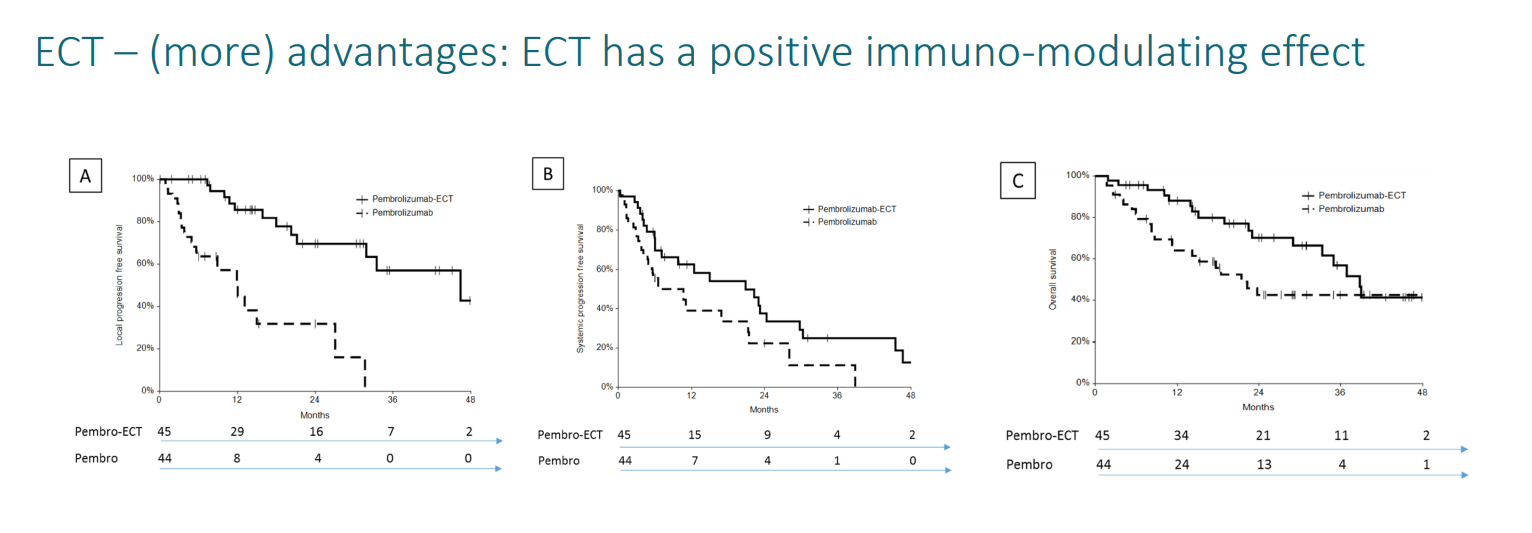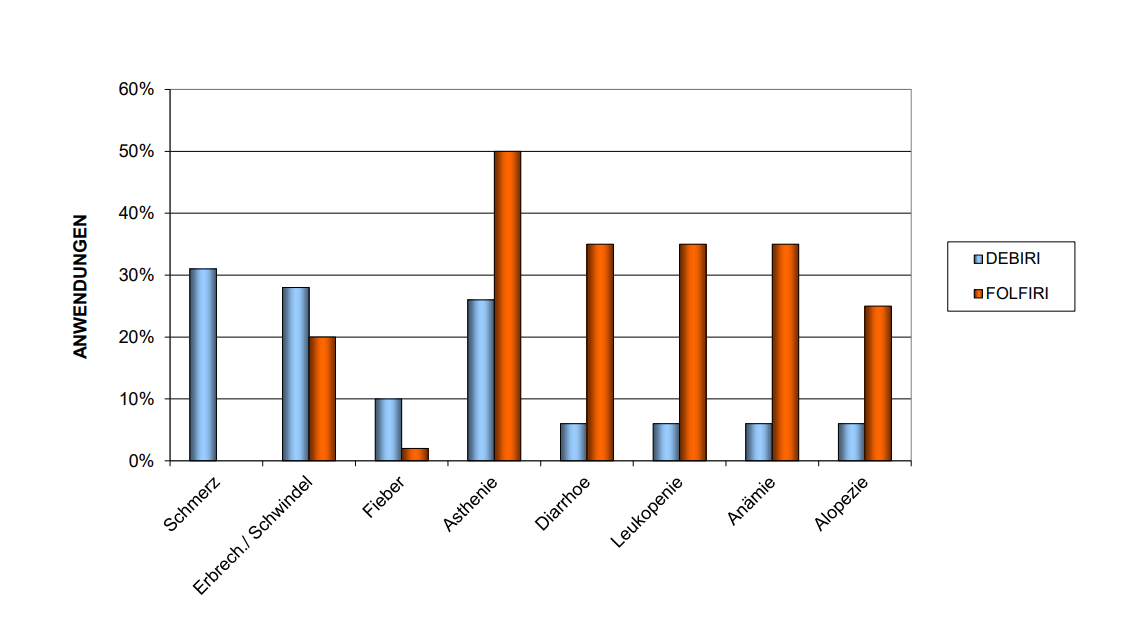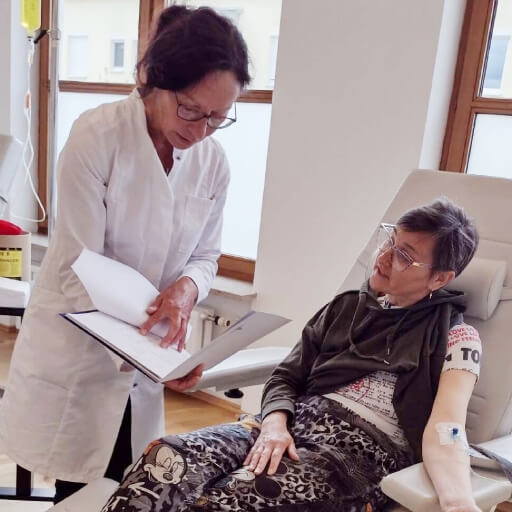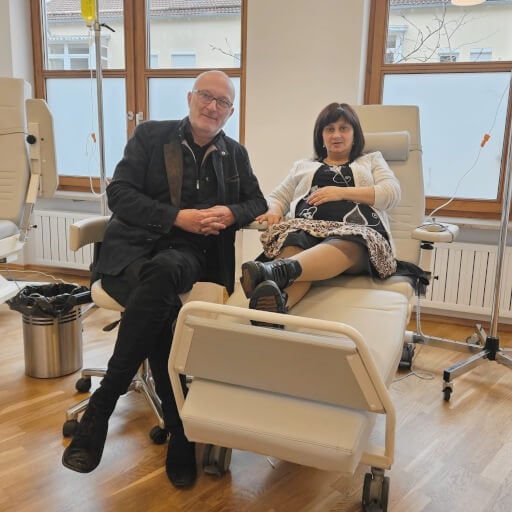Рак шейки матки является четвертым по распространенности видом онкологии у женщин во всем мире: в 2022 году было зарегистрировано около 660 000 новых случаев заболевания и 350 000 смертей. Около 94% смертельных исходов при раке шейки матки приходится на страны с низким и средним уровнем дохода, поскольку в этих государствах ограничен доступ к вакцинации против вируса папилломы человека (ВПЧ) и регулярным скрининговым обследованиям. В США прогнозируется 13 360 новых случаев инвазивного рака шейки матки и 4 320 смертей от этой онкопатологии каждый год. Большинство случаев смертельных исходов при раке шейки матки приходится на 4 стадию болезни – пятилетняя выживаемость на этой стадии составляет всего 15-17% по сравнению с 95% на 1 стадии и 70% на 2 стадии.
На метастатической стадии рак распространяется за пределы шейки матки и тазовой области, поражая отдаленные органы – чаще всего легкие, печень, лимфоузлы и кости. Такое обширное распространение онкопроцесса связано с серьезными сложностями в ходе лечения, но сейчас в арсенале врачей появляется все больше специализированных терапевтических методик, открывающих новые возможности для пациенток с этим диагнозом.
Специалисты с богатым экспертным опытом в области лечения рака шейки матки 4 стадии разрабатывают для каждой пациентки персонализированную схему терапии с учетом ее индивидуальных потребностей, ведь даже на поздних стадиях злокачественного заболевания правильно подобранная тактика лечения способна все кардинально изменить, подарив женщине надежду на жизнь.
Стандартные методы лечения рака шейки матки 4 стадии
При лечении 4 стадии рака шейки матки на первый план выходит не полное излечение онкопатологии, а устранение симптомов, продление жизни женщины и улучшение ее качества. Лечение по стандартному протоколу направлено на достижение максимального контроля над прогрессирующим заболеванием и облегчение сопровождающих его изнурительных симптомов.
Химиотерапия относится к числу наиболее часто применяемых стандартных методов лечения рака шейки матки 4 стадии. Химиопрепараты воздействуют на быстро делящиеся раковые клетки в организме женщины и нарушают их рост, что способствует уменьшению размеров опухоли и замедлению прогрессирования заболевания. Химиотерапия обеспечивает временный контроль над прогрессированием рака, но при этом во многих случаях сопровождается рядом серьезных побочных эффектов, которые негативно сказываются на самочувствии пациентки.
Лучевая терапия является еще одним стандартным методом лечения при этой онкопатологии, который применяется для облегчения симптомов, особенно в тех случаях, когда злокачественное новообразование провоцирует выраженный болевой синдром или кровотечения. При облучении высокоэнергетические лучи воздействуют непосредственно на вторичные онкологические очаги, за счет чего происходит уменьшение размеров опухолей и устраняется дискомфорт. Лучевая терапия обычно не способна существенно продлить жизнь пациентки с раком шейки матки 4 стадии, но ей отводится важная роль в контексте симптоматического лечения.
Паллиативная помощь считается неотъемлемой частью комплексной схемы лечения рака шейки матки 4 стадии. Она направлена не только на устранение физических симптомов, таких как болевой синдром и кровотечения, но и на оказание психоэмоциональной и социальной поддержки самой пациентке и членам ее семьи. За предоставление паллиативной помощи отвечает междисциплинарная команда врачей. Такое лечение призвано помочь пациентке поддерживать удовлетворительное самочувствие по мере прогрессирования онкопатологии.
Инновационные методы лечения
Результаты недавних исследований указывают на тревожную тенденцию – количество случаев рака шейки матки 4 стадии стабильно увеличивается. В связи с этим все большее значение приобретает ранняя диагностика онкозаболевания и доступ к инновационным методам лечения. В настоящее время лечение рака шейки матки 4 стадии не ограничивается стандартным протоколом, ведь в арсенале онкологов появились такие инновационные методы, как терапия дендритными клетками, трансартериальная химиоэмболизация (TACE) и гипертермия. Все эти процедуры способствуют улучшению долгосрочных результатов и повышению качества жизни пациентки.
Интервенционная радиология
В области интервенционной радиологии предлагается ряд минимально инвазивных техник, которые стали важной составляющей лечения прогрессирующего рака шейки матки. Такие процедуры выполняются под визуальным контролем и обеспечивают таргетное воздействие на онкологический очаг при рецидиве рака, невозможности выполнения хирургического вмешательства или в случае ограниченных возможностей традиционного лечения. Непосредственное воздействие на опухоль в ходе интервенционного вмешательства без вреда для близлежащих тканей позволяет достичь контроля над заболеванием и устранить симптоматику.
Термоабляция – метод, продемонстрировавший многообещающие результаты в области онкогинекологии, в том числе в лечении локального рецидива рака шейки матки. Существует два основных варианта этой терапевтической техники: радиочастотная абляция (РЧА) и микроволновая абляция (МВА). Основу обоих техник термоабляции составляет генерация интенсивной тепловой энергии, под воздействием которой происходит необратимое повреждение раковых клеток.
По данным клинических исследований, сочетание МВА с лучевой терапией или системной химиотерапией в 82% случаев позволяет достичь локального контроля над злокачественным новообразованием на период 12 месяцев. Это имеет большое значение для пациенток с локальным рецидивом онкопатологии в тазовой области. К тому же термоабляция может выступать в качестве эффективного альтернативного варианта лечения при наличии у женщины противопоказаний к повторному облучению.
Криоабляция – щадящая лечебная процедура, при которой за счет воздействия экстремально низких температур обеспечивается лизис раковых клеток и блокировка микрососудов, кровоснабжающих опухоль. В контексте лечения рака шейки матки применение этой методики в первую очередь исследовалось при рецидивах онкопатологии в области таза, особенно в паллиативных целях или при локализации новообразования вблизи таких жизненно важных органов, как мочевой пузырь или прямая кишка.
Исследования демонстрируют, что в более чем 75% случаев криотерапия помогает облегчить симптомы и уменьшить объем опухоли, обеспечивая при этом минимальный профиль побочных эффектов.² Лечение хорошо переносится пациентками. В случае рецидива или обнаружении остаточной опухоли возможно повторное проведение процедуры.
Электрохимиотерапия (ЭХТ) – новаторский метод лечения прогрессирующего и рецидивирующего рака шейки матки, особенно при поражениях свода влагалища, боковой стенки таза или кожных покровов. Суть данной терапевтической процедуры заключается в таргетном введении цитотоксического препарата с одномоментной стимуляцией опухолевого очага электрическими импульсами, усиливающими внутриклеточное поглощение лекарственного средства.

Последние исследования с участием пациенток с рецидивирующим раком шейки матки продемонстрировали показатели эффективности в пределах 65-72%, особенно при лечении поверхностных опухолей и новообразований с легкодоступной локализацией.³ ЭХТ также провоцирует иммуногенную гибель клеток, что предполагает потенциальный синергетический эффект при использовании метода в комбинации с иммунотерапевтическим лечением.
Трансартериальная химиоэмболизация (TACE) – инновационный метод лечения, который все чаще применяется в борьбе с раком шейки матки 4 стадии, особенно при наличии у пациентки метастазов в печени или легких. При выполнении этой процедуры химиопрепараты доставляются непосредственно в питающие опухоль кровеносные сосуды с последующим преднамеренным их блокированием. Это позволяет перекрыть питающий опухоль кровоток, в результате чего новообразование лишается кислорода и питательных веществ.
TACE является локальным методом лечения, который с высокой эффективность воздействует непосредственно на опухоль, при этом существенно снижая профиль системных побочных эффектов. По данным клинических исследований, процедура помогает уменьшить размеры опухоли в 50-70% случаев, что обеспечивает лучшие результаты лечения по сравнению с проведением одной лишь традиционной химиотерапии.

**DEBIRI = TACE, FOLFIRI = IV therapy; при проведении лечения по схеме DEBIRI у 90% пациентов наблюдается улучшение качества жизни на период 32 недель
Представляем вашему вниманию интервью с профессором Томасом Фоглем – главврачом Отделения радиологии Университетской клиники им. Гёте Франкфурт на Майне. В своем интервью специалист подробно рассказывает о принципе действия процедуры TACE и ее влиянии на результаты лечения, а также делится своим обширным клиническим опытом в этой сфере и реальными историями успешного лечения пациентов этим методом.
Профессор Томас Фогль: как химиоэмболизация меняет подход к лечению рака
Электрохимиотерапия при раке шейки матки 4 стадии
При раке шейки матки 4 стадии электрохимиотерапия (ЭХТ) имееет особую ценность, когда опухоли не реагируют на стандартное лечение. Электрохимиотерапия работает за счет того, что делает раковые клетки проницаемыми с помощью электрических импульсов — а затем врач насыщает их химиопрепаратами именно в тот момент, когда они наиболее уязвимы. Для лечения рецидива рака шейки матки после облучения это может быть единственным действенным вариантом.
Четвертая стадия рака не означает, что все безнадежно — она означает, что традиционного протокола лечения недостаточно. Электрохимиотерапия способна контролировать опухоли, которое не отвечали на другие методы лечения. Профессор Карл Р. Айгнер рассказывает о женщинах с рецидивирующим раком шейки матки, которые достигли ремиссии после изолированной перфузии малого таза в сочетании с ЭХТ, даже после множественных неудачных попыток традиционного лечения.
Техника заключается в следующем: электроды создают электрическое поле вокруг опухоли (импульсы подаются под анестезией), раковые клетки становятся проницаемыми. Высокодозная химиотерапия вводится именно в это «терапевтическое окно» — так опухоль разрушается более эффективно, чем может обеспечить системная химиотерапия. Побочные эффекты минимальны, поскольку лечение локальное. К тому же фильтрация удаляет избыток химиопрепаратов, и пациентки вечером того же дня могут ходить по клинике.
Стоимость электрохимиотерапии отражает сложность процедуры — Booking Health предоставляет информацию о стоимости и экспертных клиниках.
Регионарная химиотерапия при раке шейки матки 4 стадии
Метод дает надежду, когда традиционные терапевтические варианты исчерпаны. Четвертая стадия означает наличие отдаленных метастазов (часто поражены легкие, печень, кости) — системная химиотерапия слишком сильно снижает концентрацию препаратов, чтобы быть способной эффективно контролировать и первичную опухоль, и метастазы. Подход профессора Карла Р. Айгнера: лечить каждый злокачественный очаг регионарно, с максимальными концентрациями препаратов, а не подвергать весь организм воздействию недостаточных доз.
Регионарная химиотерапия (РХ) требует изоляции кровотока в малом тазу. Высокодозная химиотерапия поступает в опухоль, кровоток блокируется (чтобы задержать препараты в нужном месте), а затем специальная фильтрация удаляет оставшиеся препараты до их попадания в системный кровоток — пациентки испытывают минимальные побочные эффекты, поскольку воздействие химиопрепарата ограничено. В этом и заключается разница между регионарным и системным подходами.
Пациентки с 4 стадией рака часто имеют опухоль в малом тазу и отдаленные метастазы. Последовательное регионарное лечение контролирует болезнь по всему телу, не перегружая пациентку системной токсичностью. Изолированная перфузия для опухоли малого таза, печеночная перфузия при метастазах в печень, легочная перфузия при поражении легких — каждая область лечится индивидуально, с соответствующими концентрациями препаратов.
Результаты демонстрируют возможности метода: пациентки, которым грозила колостома или которым сказали «больше ничего нельзя сделать», достигают контроля над опухолью, иногда — полной ремиссии. В интервью профессор Айгнер рассказывает эти истории и делится полезной информацией.
Терапия дендритными клетками
Терапия дендритными клетками – это передовой вид иммунотерапии, демонстрирующий многообещающие результаты в лечении прогрессирующего рака, в том числе рака шейки матки 4 стадии. Метод подразумевает задействование собственной иммунной системы пациента для борьбы с раком путем ее активации с помощью дендритных клеток – специализированных иммунных клеток, идентифицирующих и представляющих раковые клетки защитным механизмам организма. Активация дендритных клеток происходит в лабораторных условиях, после чего они вводятся пациенту, запуская в его организме таргетный иммунный ответ, что дает возможность иммунной системе более эффективно распознавать и атаковать раковые клетки.
Лечение дендритными клетками продемонстрировало обнадеживающие результаты в рамках клинических испытаний. Международное признание метод получил после присуждения доктору Ральфу Штейнману в 2011 году Нобелевской премии по физиологии и медицине за открытие дендритных клеток и их роли в адаптивном иммунитете.
Подробная информация об особенностях проведения терапии дендритными клетками и ее огромном потенциале в лечении рака содержится в эксклюзивном интервью опытного иммунолога профессора Франка Гансауге. В своем интервью специалист также делится историями об успешном лечении пациентов дендритными клетками из собственной повседневной клинической практики.
Профессор Ганcауге раскрывает секреты лечения рака дендритными клетками: от науки к практике
Гипертермия
Гипертермия представляет собой перспективный метод поддерживающего лечения рака шейки матки 4 стадии. При проведении данного вида терапии для ослабления раковых клеток и повышения эффективности традиционных методов лечения (химиотерапии, лучевой терапии и иммунотерапии) используется контролируемое воздействие на организм тепловой энергией. Повышение температуры опухолей до 40-45°C способствует разрушению структуры раковых клеток, улучшению притока крови к месту локализации новообразования, за счет чего лекарственные препараты лучше проникают в онкологический очаг, и стимуляции иммунной системы для лучшего распознавания и уничтожения злокачественных клеток.
Существует два основных вида гипертермии: локальная гипертермия, воздействующая радиочастотной или ультразвуковой энергией на конкретные участки опухоли, и гипертермия всего тела, при которой повышается температура всего тела с целью усиления иммунной защиты организма. Исследования продемонстрировали, что проведение гипертермии в сочетании со стандартными методами лечения способствует улучшению ответа опухоли на терапию и замедлению прогрессирования заболевания. Сейчас этот метод все еще находится на стадии клинических исследований, но его все чаще расценивают в качестве важной составляющей комплексной схемы лечения, позволяющей улучшить терапевтические результаты и качество жизни пациенток с 4 стадией рака шейки матки.
Сравнительная таблица с данными по методам лечения
Приведенная ниже таблица содержит сравнительные данные по стандартным и инновационным методикам лечения рака шейки матки 4 стадии: в ней представлены показатели эффективности лечения, продолжительность курса терапии, преимущества и ограничения каждого из методов, а также приблизительная стоимость лечения.
| Характеристики/Вид терапии | Показатели 2-летней выживаемости | Показатели ответа на лечение | Продолжительность курса лечения | Побочные эффекты |
|---|---|---|---|---|
| Стандартные методы лечения | ~25% на поздних стадиях рака | Менее 10% | Несколько циклов | Тяжелые побочные эффекты (тошнота, утомляемость, выпадение волос, иммуносупрессия, раздражение кожи) |
| Инновационные методы лечения | ~60% на поздних стадиях рака | 45-65% | До 4 сеансов | Незначительные побочные эффекты (дискомфорт в месте проведения лечебной манипуляции) |
Стоимость лечения рака шейки матки 4 стадии
| Метод лечения | Германия | Великобритания | США |
|---|---|---|---|
| Стандартные методы лечения | €80 000 - €150 000 за полный курс | €90 000 - €165 000 за полный курс | €100 000 - €180 000 за полный курс |
| Инновационные методы лечения | €25 000 - €60 000 за полный курс | €70 000 - €120 000 за полный курс | €100 000 - €150 000 за полный курс |
*Стоимость каждого из метода лечения может варьироваться в зависимости от страны и клиники, в которых будет проводится терапия, продолжительности курса лечения и того, является ли терапевтическая процедура частью комплексной схемы лечения. В таблице указана приблизительная стоимость лечения, в которую не входят дополнительные расходы на диагностику, пребывание в стационаре и поддерживающая терапия.
Истории пациенток об успешном лечении 4 стадии рака шейки матки
Диагноз рак шейки матки 4 стадии с метастатическим поражением печени, легких или костей воспринимается женщиной как приговор. При отсутствии лечения ожидаемая продолжительность жизни значительно сокращается, пациентке приходится совладать с серьезными симптомами: сильными кровотечениями, выраженным болевым синдромом, повышенной утомляемостью. Но на самом деле не все так безнадежно, ведь современная онкология предлагает инновационные виды терапии, которые дают надежду даже в самых сложных клинических ситуациях.
История каждой пациентки с раком шейки матки 4 стадии уникальная, но цель всегда одна – улучшение качества жизни и повышение ее продолжительности. С внедрением в клиническую практику таргетной терапии, иммунотерапии, терапии дендритными клетками и химиоэмболизации у женщин с прогрессирующим раком шейки матки появилась новая надежда. Раньше возможности лечения в такой ситуации были весьма ограничены, но сейчас проведение этих инновационных процедуры способно существенно улучшить терапевтические результаты и повысить качество жизни.
Путь Марии к выздоровлению
47-летней Марии Гонсалес из Испании диагностировали рак шейки матки 4 стадии с метастазами в печени и легких. Каждый день женщине приходилось совладать с сильными болями в области таза и повышенной утомляемостью. Единственным предложенным врачами вариантом лечения на родине была паллиативная помощь. Тем не менее, Мария не собиралась сдаваться и сидеть сложа руки. Она с дочерью начала поиски альтернативных инновационных методов лечения в других странах мира.
Благодаря онлайн-консультациям с врачами из Германии Мария узнала о возможности лечения вакцинацией дендритными клетками и методом химиоэмболизации в специализированном онкологическом центре в этой стране. Организацией лечения Марии в этой клинике занимались сотрудники компании Booking Health, включая помощь с бронированием авиабилетов и организацией трансфера в Германии, помощь в оформлении визы и услуги переводчика.
По прибытии в Германию Мария прошла обследование, на основании результатов которого команда онкологов и специалистов в области проведения иммунотерапии составила для нее персонализированную схему лечения. Мария получила курс терапии дендритными клетками для усиления иммунного ответа, после чего она также прошла процедуру химиоэмболизации для прицельного воздействия на метастатические очаги в печени с целью уменьшения их размеров.
Результаты лечения превзошли все ожидания. Через три месяца после лечения по результатам контрольных визуализационных исследований врачи констатировали значительное уменьшение размера опухоли. Кроме того, Марии удалось избавиться от симптомов, включая сильные кровотечения и хронический болевой синдром. Спустя 6 месяцев Мария смогла вернуться к работе на неполный рабочий день, что ранее казалось невозможным.
На сегодняшний день Мария все еще получает поддерживающую иммунотерапию. Онкологи дают благоприятный прогноз. «Я и подумать не могла, что смогу снова нормально себя чувствовать» – говорит Мария. «Я могу проводить время со своей дочерью и ходить на прогулки, а главное – теперь у меня есть надежда».
Такие вдохновляющие истории пациенток являются яркой демонстрацией того, что 4 стадия рака шейки матки – это не приговор, а всего лишь заболевание, которое поддается лечению с помощью инновационных терапевтических процедур. Опыт таких пациенток, как Мария, свидетельствует о том, что даже на 4 стадии рака все еще есть шанс спасти жизнь человека.
Поездка на лечение за границу с Booking Health
Самостоятельный поиск наилучшей тактики лечения с учетом вашей индивидуальной клинической ситуации – довольно сложная задача. Испытав на себе многочисленные курсы лечения, проконсультировавшись со множеством специалистов и испробовав различные терапевтические процедуры, вам может быть трудно сориентироваться во всей предоставленной врачами информации. В таком случае пациенты зачастую выбирают первый же предложенный вариант лечения или соглашаются на лечение с применением стандартизированных терапевтических протоколов, которое повлечет за собой множество побочных эффектов, вместо того, чтобы рассмотреть возможность терапии с помощью инновационных процедур.
Если вы хотите сделать осознанный выбор и получить лечение рака в соответствии с индивидуально разработанной для вас схемой с учетом особенностей вашей конкретной клинической ситуации, проконсультируйтесь с врачами-консультантами Booking Health. Компания Booking Health уже более 12 лет занимает ведущие позиции в сфере организации лечения за рубежом с применением новейших инноваций в медицине, поэтому ее специалисты обладают огромным опытом в составлении персонализированных комплексных программ лечения для каждого пациента. Booking Health пользуется репутацией авторитетной компании, которая предоставляет персонализированный подбор схемы лечения рака шейки матки 4 стадии и клиники с прямым бронированием приема в медицинском центре и полной поддержкой на каждом этапе лечения – от решения организационных вопросов до помощи в процессе лечения. Мы предлагаем:
- Оценку и анализ выписок пациентки
- Составление индивидуальной программы лечения
- Подбор подходящего медицинского учреждения для лечения
- Подготовку медицинской документации и ее направление в выбранную пациенткой для лечения клинику
- Консультации с врачами зарубежной клиники для разработки оптимальной медицинской программы на этапе подготовки к поездке на лечение
- Экспертные консультации во время пребывания в больнице
- Последующее консультирование пациентки после ее возвращения на родину по завершении медицинской программы
- Решение организационных вопросов в рамках подготовки к поездке на лечение за границу
- Координацию пребывания пациентки в другой стране, помощь в бронировании отеля или апартаментов на период лечения
- Помощь в оформлении визы и бронировании авиабилетов
- Услуги переводчика и персонального координатора, который будет с вами на связи 24/7
- Прозрачные цены на лечение без скрытых платежей
Здоровье – главная ценность в жизни каждого человека, доверять заботу о которой стоит лишь лучшим специалистам с богатым опытом и проверенной репутацией. Booking Health – это ваш надежный партнер, который оказывает всестороннюю помощь на пути к восстановлению здоровья и улучшению качества жизни. Свяжитесь с врачом-консультантом компании, чтобы узнать больше о возможностях персонализированного лечения метастатического рака шейки матки у ведущих экспертов с использованием инновационных методов.
Эффективное лечение рака: опыт пациентов Booking Health
Частые вопросы наших пациенток о 4 стадии рака шейки матки
Отправить запрос на лечениеРак шейки матки 4 стадии – самая тяжелая стадия заболевания, при которой онкопроцесс распространяется на отдаленные органы: легкие, печень, кости или лимфоузлы.
К наиболее распространенным симптомам относятся выраженный болевой синдром в области таза, сильные маточные кровотечения, повышенная утомляемость, потеря веса, отеки нижних конечностей, а также патологические проявления со стороны легких и печени на фоне распространения метастазов в эти органы.
К числу стандартных методов лечения рака шейки матки 4 стадии относятся химиотерапия, лучевая терапия и хирургия (в редких случаях). Спектр используемых при этом виде рака инновационных методик включает иммунотерапию, терапию дендритными клетками, гипертермию, химиоэмболизацию (TACE) и паллиативную помощь для облегчения симптомов.
Прогнозы на этой стадии болезни значительно различаются. Средняя продолжительность жизни пациенток с раком шейки матки 4 стадии при условии получения необходимого лечения составляет около 1-2 лет. Включение в схему лечения инновационных методов способствует существенному повышению показателей выживаемости и улучшению качества жизни.
На ранних стадиях онкопроцесс локализуется в пределах шейки матки и близлежащих тканей, а на 4 стадии рака появляются метастазы в отдаленных органах – чаще всего в легких, печени, костях или лимфоузлах.
В каких органах и анатомических структурах в большинстве случаев появляются метастазы при раке шейки матки 4 стадии?
Рак шейки матки 4 стадии в основном метастазирует в легкие, печень, кости, лимфоузлы и органы в тазовой области.
В случае отсутствия лечения продолжительность жизни пациентки с раком шейки матки 4 стадии обычно составляет около 6-12 месяцев в зависимости от степени распространения метастазов и их локализации.
Эти стандартные методы лечения позволяют добиться контроля над симптомами и повысить показатели выживаемости, но полное излечение на 4 стадии заболевания они обеспечивают довольно редко. Эффективность этих видов терапии значительно различается и составляет 30-50%.
Выбирайте лечение за рубежом и Вы, несомненно, получите отличный результат!
Авторы:
Статья составлена под редакцией экспертов в области медицины, врачей-специалистов доктора Надежды Иванисовой и доктора Вадима Жилюка. Для лечения состояний, о которых идет речь в статье, необходимо обратиться к врачу; информация в статье не предназначена для самолечения!
С редакционной политикой, которая отражает наше стремление к точности и прозрачности, можно ознакомиться здесь. Перейдите по ссылке, чтобы ознакомиться с нашими правилами.
Источники:
National Institutes of Health (NIH)
Читайте:
Лечение рака шейки матки 4 стадии в Германии
Меню статьи:
Не знаете, с чего начать?
Свяжитесь с Booking Health













